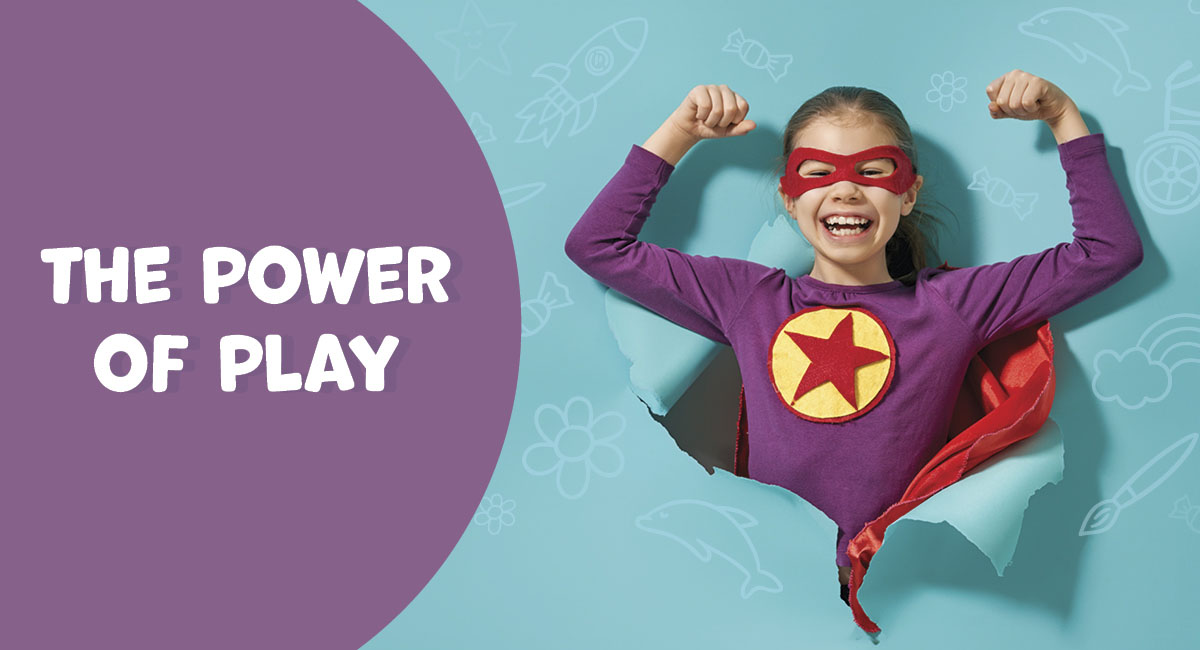Play has enormous benefits for a child’s development. Expert advice – parents, value play!
Children have the right to play, enshrined in the Convention on the Rights of the Child. Often play and its importance are underestimated, even though play is of enormous value to a child’s development. It is very natural for a child to learn and process new skills through play.
“If there was only one piece of advice you could give to parents, it would be to value play! Make enough room for play in your busy everyday life”, says Karolina Lamroth, the National Play Day Programme Coordinator at the Finnish Mannerheim League for Child Welfare.
And while play is a child’s right, the benefits of play don’t matter what age you are! For adults, play can be a hobby, science, art – play does not stop at any age or in adulthood. People need to play, whatever their age.
Play is a child’s anarchy in an adult world
Play allows the child to lead and the parent to follow, it is an empowering setting for the child. The parent, in turn, can discover new skills and new things in their child as they play.
“Play is like a child’s anarchy. In a child’s world, adults create the rules, schedules, and framework, but in play, the child can be the boss and experience feelings of success or admiration for his or her own skills and abilities,” says Karolina.
Play doesn’t have to teach a child what the world is really like, the realities of life are learned along the way, even if they don’t want to.
“In the game, the subway can easily leave the Sörnäinen station via a couple of stops straight into space and that’s ok, no need to fix it, anything can happen in the play.”
Adults only see a superficial glimpse of the child’s play. Play is powered by child’s imagination and is a much more profound experience than moving a train around on the back of a sofa.
The impact of play on a child’s development and health
Play does not always happen on schedule. A better option would be to set aside space in everyday life for the family to be together, without a to-do list or timetable, whenever possible.
Play has many benefits! Play is restorative and relaxing for the child in the midst of the hustle and bustle of everyday life, it reduces the pressure to perform. It helps children learn new things, increases well-being, problem-solving and reasoning skills, increases creativity, improves social skills and, above all, supports the development of imagination.
The development of imagination through play also strongly supports the development of thinking.
“When a child can imagine things that are not true and then distinguish between those that are true, they is also able to perceive different entities,” says Karolina.
“Through imagination, a child begins to see different possibilities. Play encourages dreaming and fosters a belief in the future. These skills are very important for a child’s personal development.”
The phenomenon-based model of learning through play is also often used in schools. For example, physical and motor skills are taught through games, competitions, and play.
The benefits of play include:
- Restorative and relaxing
- Reinvigorates and builds confidence in one’s own abilities
- Relieves pressure to perform
- Helps learning and application
- Helps dealing with difficult issues
- Helps to learn how to work with emotions
- Increases well-being
- Increases problem-solving and reasoning skills
- Increases creativity
- Improves social skills
- Supports the development of imagination
- Supports the development of thinking
- Teaches to see the bigger picture
- Increases confidence in the future and encourages dreaming
- Supports the development of the child’s own personality.
This article is a translation and has been shortened. Find the original article in Finnish here.
Explore more of our play-related articles: AI toys – are they safe.
